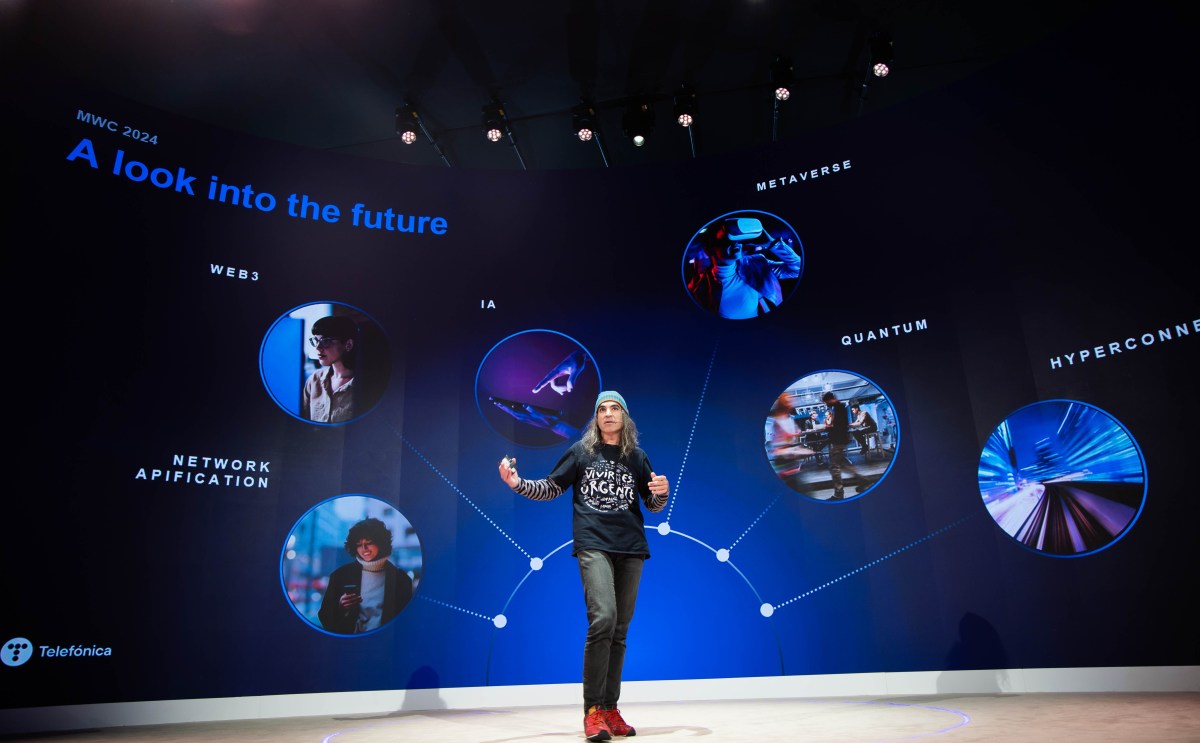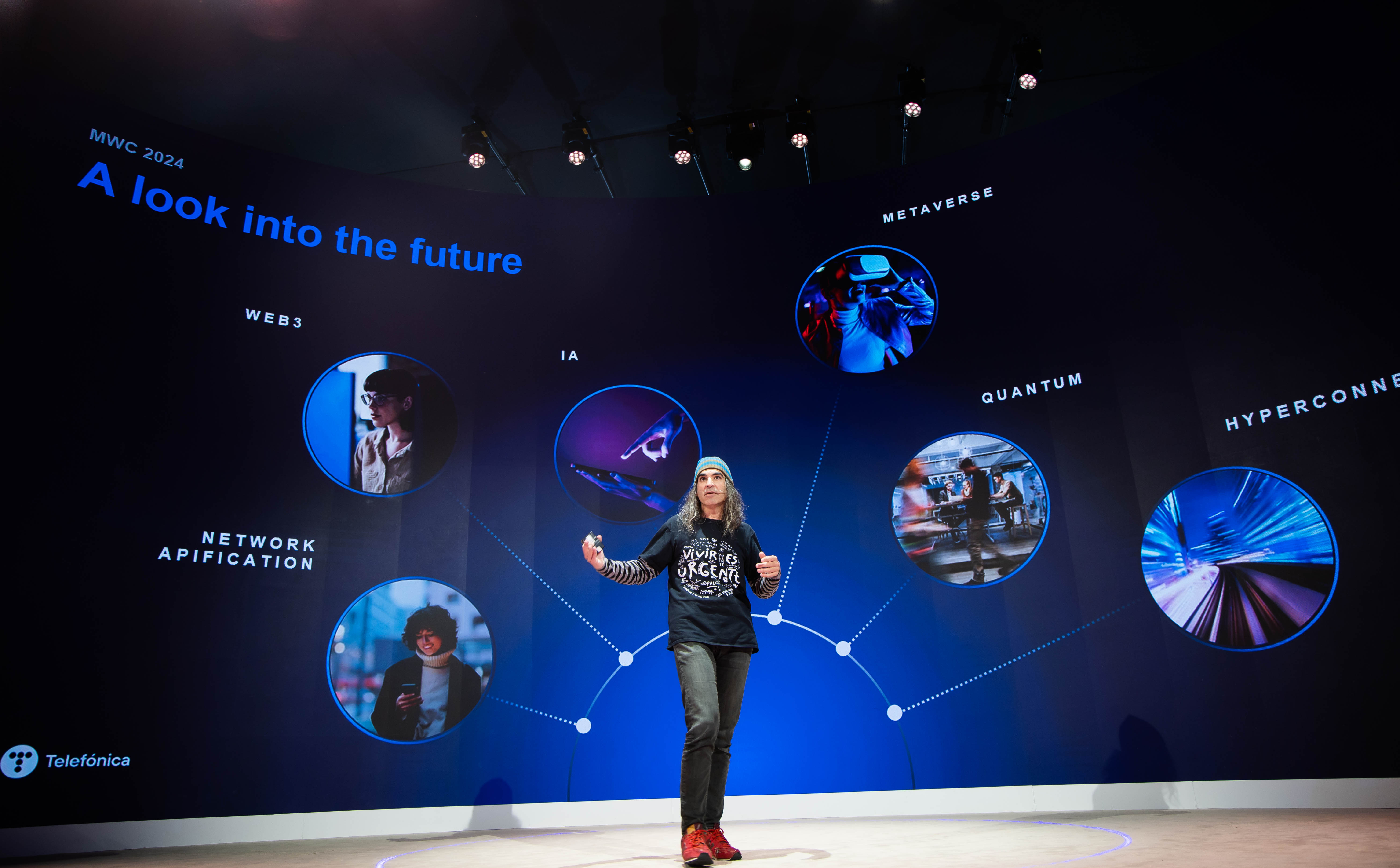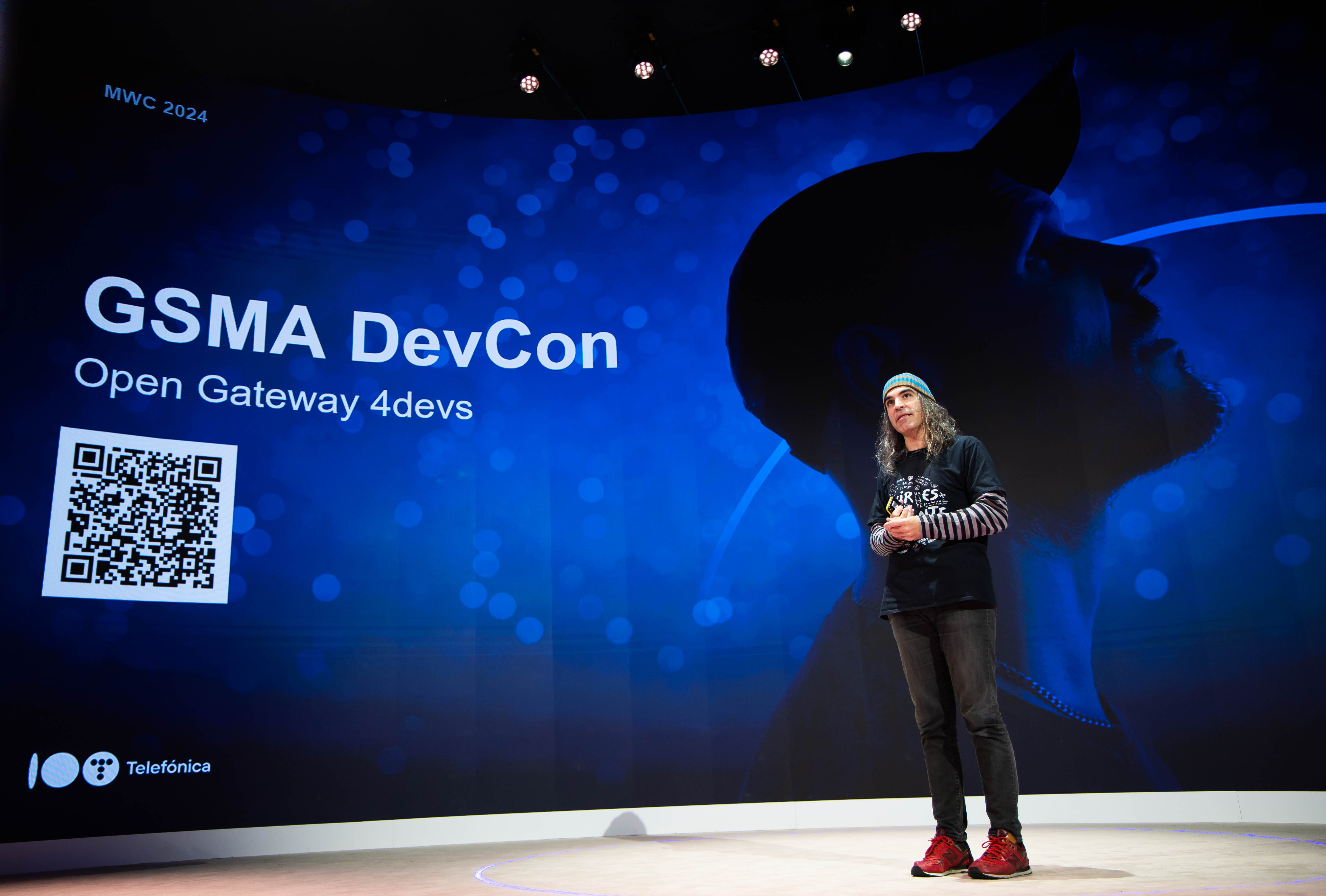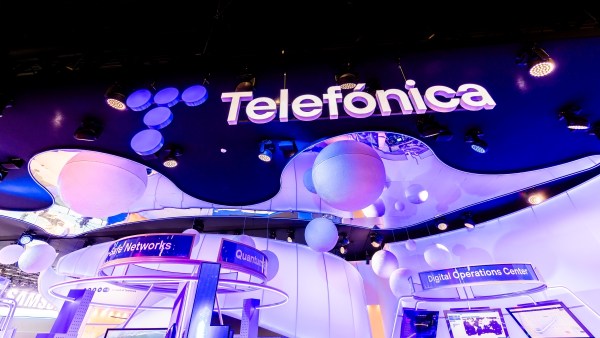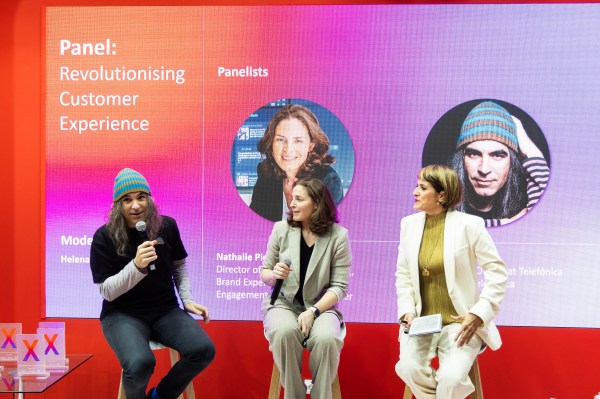Telefónica today announced its partnership with Microsoft to integrate Azure AI Studio into Telefónica Kernel 2.0, enabling the company to extend the capabilities of Kernel by applying generative AI to key workflows. The announcement was made today by Chema Alonso, Chief Digital Officer of Telefónica, during his speech at the opening session of Mobile World Congress (MWC), where he was joined by Jason Zander, EVP Strategic Missions and Technologies at Microsoft.
Telefónica Kernel, first presented in 2017 under the name of the fourth platform, is the foundation of the digital ecosystem on which the company develops new products and services in an agile and efficient way. Designed with identity management, data, appification and privacy as fundamental pillars, it provides the standardised and unified information needed to operate applications, services, platforms, and communication channels with Telefónica’s customers. It also has an integrated payment gateway and Aura, Telefónica’s artificial intelligence (AI) digital assistant.
Telefónica is aware of the boom that generative AI has experienced in the last year and, in particular, the advances made by the Large Language Model or Small Language Model (LLM, SLM). These algorithms, used to extend, transform or generate text from a request expressed in natural language (prompt), can greatly transform many of the company’s key tasks, and are trained on large amounts of textual data to learn patterns, allowing them to generate coherent and realistic information. This is why the company wanted to anticipate the challenges ahead and integrate this technology into Kernel, the digital heart of Telefónica.
Telefónica is working with Microsoft to extend Kernel workflows through Azure AI Studio. This integration will enable Telefónica’s ‘data scientists’ to access Kernel’s digital capabilities in a frictionless and privacy-compliant manner. In other words, they will be able to use generative AI capabilities in LLM or SLM mode, whether they are commercial or internally developed models.
At Telefónica, customer privacy is a priority and the cross-platform implementation of Kernel 2.0 ensures that no one can ever access data without the appropriate legal basis. Kernel 2.0 has developed an architectural extension that allows the capabilities of these language models to be seamlessly integrated with Kernel’s data and APIs. The integration announced today aims to harness the potential of these models while protecting the privacy of its customers.
Chema Alonso, Chief Digital Officer at Telefónica, said in his speech: “The field of generative AI has experienced significant growth, but privacy issues have also arisen. Telefónica’s Privacy-by-Design approach, implemented through Kernel, ensures our customers’ privacy while leveraging LLM and SLM. Our partnership with Microsoft will further facilitate the integration of Kernel’s data workflows, enabling efficient, privacy-focused AI development.
Jason Zander, EVP, Strategic Missions and Technologies, Microsoft, comments: “AI is opening tremendous new growth opportunities for operators. Telefonica’s integration of generative AI into Kernel is a prime example of this – by creating a centralized AI platform, they will be able to drive full business transformation and apply AI at scale to every function in the organization.
Microsoft has also announced that Telefónica will be one of the operators included in the Azure Programmable Connectivity (APC) service, as part of its commitment to Open Gateway. This service simplifies developer access to operator network APIs. It provides a single, standardised interface across operator networks, making it easier for developers to build cloud-native mobile applications that interact with network intelligence. Launched at MWC Barcelona 2023, APC is now available as a public preview with several APIs including number verification, SIM swapping and location services.
Telefónica Open Gateway success stories
Chema Alonso’s speech also highlighted this year’s progress on Open Gateway, the GSMA-led industry initiative to transform telecoms networks into programmable platforms, opening up network capabilities to everyone. Launched at MWC 2023, Alonso highlighted that Telefónica has developed nine APIs that are already available in Brazil, Spain and Germany.
In Brazil, he wanted to highlight real cases that are already working with customers. One of them is Bank Itaú, one of the most important financial institutions in Brazil, which, in collaboration with Infobip and other Brazilian operators, has implemented Telefónica Open Gateway’s SIM Swap API in its platform, allowing the bank to prevent possible fraud when validating transactions using only the phone number of a device.
Another customer mentioned during the presentation is Daycoval Bank, a financial institution with more than 50 years in the Brazilian market, specialising in loans for businesses and individuals. Daycoval uses Open Gateway’s SIM Swap API to check if there has been a recent change of SIM card and phone number when customers open a new account.
Frete.com is another Telefónica Brazil customer that uses Open Gateway’s Know Your Customer (KYC) API to verify its customers’ data, including their mobile phone number. This is a Brazilian ground transportation platform that, thanks to the implementation of this API, has been able to verify with guarantees when a driver registers in its application.
During his speech, Chema Alonso also highlighted cases of clients they have in Spain. One of the most prominent was Vinted, a leading e-commerce company in the second-hand fashion sector, which is working with Telefónica, Vonage and other communications service providers to integrate Open Gateway’s Number Verification API to provide a more secure and efficient user experience.
For more information: Telefónica at MWC 2024
